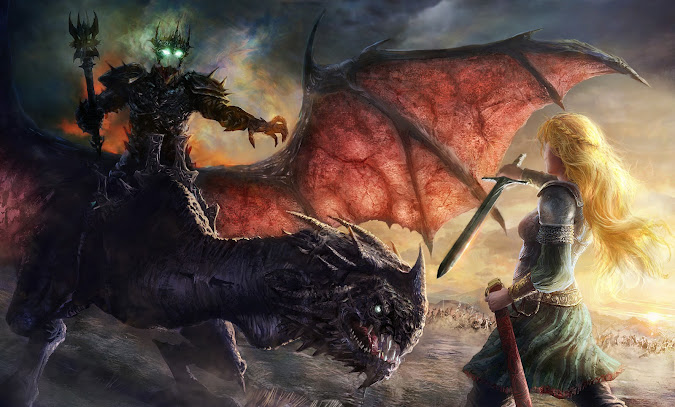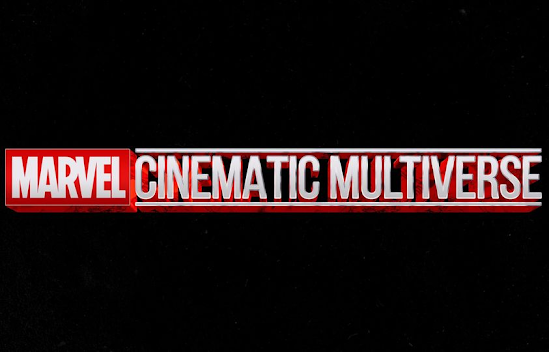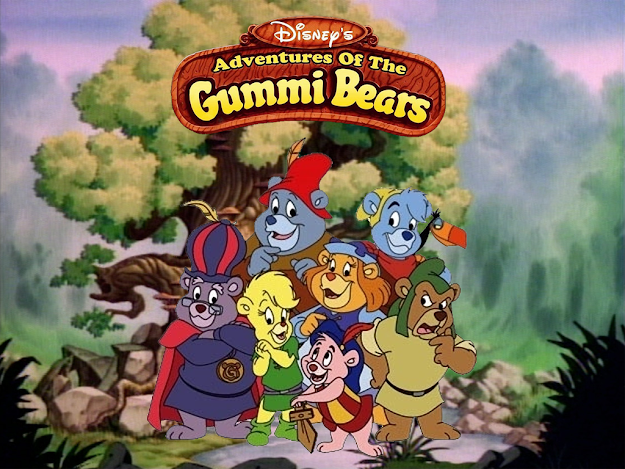Break from D&D (sorta): Call of Cthulhu Alternate System
Something occurred to me and I needed a forum to post. Since this is the only gaming blog I maintain, my others being company-related and personal respectively, I figured this is the place. So we'll break from OD&D for a post, but at the same time still stay related.
How, you ask? Hopefully you'll see.
Call of Cthulhu is one of the longest-lived and most beloved games out there. People adore it. I myself am a big fan of H.P. Lovecraft and the Cthulhu Mythos, though I tend (as most of you have probably figured out by now) towards Howardian pulp over the weird fiction of Lovecraft. I prefer my heroes to grab a sword off the mantel and go down fighting trying to beat back the darkness one more day, than to quietly go mad, gibbering about Cthulhu Cults in an asylum.
Which brings us around to the Cthulhu RPG. It's a good system for mimicking Lovecraftian Horror, because it gets the Hell out of the way and lets you focus on story. Unfortunately, in my opinion, the system itself is pretty blah...and pretty broken when it comes to combat. I never bought into the excuse that you're not supposed to fight in Cthulhu.
What about RuneQuest, which was the original game to use the system? Certainly you can't argue you're not supposed to fight in a fantasy game.
The system doesn't work because it is a traditional percentile-based system, and these always fail because they are too absolute. Either you succeed or fail, and there's precious little way to compare degrees of success or failure, and almost no good way to adjudicate contested results. Sure, you could go with "whoever rolls lower wins," but that makes your actual skill percentage pretty moot--doesn't matter if I have 10% and you have 50% if we're both trying to roll 01. You could adjudicate by whoever beats their percentage by more (or less, as you like it), but that adds an extra step of arithmetic after the die roll, and I'm firmly against that.
The most egregious problem with Call of Cthulhu is "Dodge as an uberskill." Dodge trumps everything when it comes to combat. If I roll to shoot you, it doesn't make a lick of difference if I roll 01--if you beat your dodge score by any margin...you dodge. Period. So why not just pump all the points you can into Dodge right out of the gate, and be unkillable? I am of the school that combat should ALWAYS be comparative--your attack roll against either a static defense score or a contested roll.
Sure, CoC provides a pretty neat table for passive vs. aggressive ability comparisons, but it's not universal enough to work for everything. I've tried to work out a good way to make it function with skills, for combat, but it just doesn't play out properly.
And while I know that mathematically roll-under systems are no more absolute than roll-over systems, they feel more absolute to me, because once you hit zero, that's it, unless you want to go into negatives. Which you can do, but ugh. Just seems inelegant (yes, I am aware that a guy who champions D&D's Descending AC system comes off as odd being against negative numbers, but live with it).
Here's the thing, though: I want to love Call of Cthulhu. The bones of the game are fantastic. I don't want to have to do all the work to convert it to another game system (though I have many a time). I want to use it right out of the book, without losing the flavor and functionality of the system, but somehow make combat more robust and allow direct comparison of results without adding extra complexity. This especially applies to what I think is one of Chaosium's most under-appreciated efforts--Cthulhu Dark Ages. CDA could be a fantastic dark fantasy / swords and sorcery game, were it possessed of a better system for such play.
I think I've just come up with a way, which works by changing percentile scores into bonuses you add to a die--a conversion that can be done on the fly and doesn't affect a single other thing about the system. Here's how it works.
Step One: Create a character as normal for CoC.
Step Two: Add Ability Bonuses a la Basic D&D (or Castles & Crusades). Ability scores in CoC work on the same 3-18 scale, so this should be easy enough to do.
Step Three: Convert Skills to Bonuses. Every skill you have provides a +1 bonus per 5% you have in that skill. For a more difficult game, round down. For a more heroic game, round up. Leave the percentage scores intact, as they will advance and increase exactly as they always have in Cthulhu (place check when you've used a skill; make a % test against it at the end of the session, if above add 1d10).
Pretty simple, so far--create your character as always, then add bonuses (in the case of skills, easily calculated from your % score).
Now, the system? Simple: when you need to resolve a task, roll 1d20 plus your skill bonus against a target number of 20. Every five points above 20 that you score nets you one success level. When in need of contested rolls, simply compare the roll results.
Since 20 divides evenly into 100, 5 times, this system should be statistically similar to a percent-based one, while still allowing direct comparison of results and levels of success in a more straightforward manner than does base Call of Cthulhu.
Alternately, you could substitute the d20 check only for situations when you need contested rolls (read: Combat), leaving the rest of the system as-is.
Those attribute bonuses you added earlier serve as "defaults" for untrained skills, or when you need to make a simple ability check, or, again for a more heroic game, you can add the appropriate Ability bonus to your skill bonus when making checks.
In general, ability checks should always be contested and not against a static TN of 20--because abilities are static (mostly) and the highest bonus you'll get is +3, it's going to be quite difficult to ever hit 20 with a simple ability score check.
I have not tested this system in practice--it's just something that banged into my head while I was reading Chaosium's latest newsletter and wishing sincerely that I could get some more use out of Cthulhu: Dark Ages (hint: they have a new Dark Ages monograph coming out).
But I think it'll work.
Oh, and if your only comment is, "I don't see why you need to mess with it; I like it just the way it is," then don't bother. I honestly don't care that you like it the way it is, and if you do...then you are clearly not the audience for this particular blog post.
How, you ask? Hopefully you'll see.
Call of Cthulhu is one of the longest-lived and most beloved games out there. People adore it. I myself am a big fan of H.P. Lovecraft and the Cthulhu Mythos, though I tend (as most of you have probably figured out by now) towards Howardian pulp over the weird fiction of Lovecraft. I prefer my heroes to grab a sword off the mantel and go down fighting trying to beat back the darkness one more day, than to quietly go mad, gibbering about Cthulhu Cults in an asylum.
Which brings us around to the Cthulhu RPG. It's a good system for mimicking Lovecraftian Horror, because it gets the Hell out of the way and lets you focus on story. Unfortunately, in my opinion, the system itself is pretty blah...and pretty broken when it comes to combat. I never bought into the excuse that you're not supposed to fight in Cthulhu.
What about RuneQuest, which was the original game to use the system? Certainly you can't argue you're not supposed to fight in a fantasy game.
The system doesn't work because it is a traditional percentile-based system, and these always fail because they are too absolute. Either you succeed or fail, and there's precious little way to compare degrees of success or failure, and almost no good way to adjudicate contested results. Sure, you could go with "whoever rolls lower wins," but that makes your actual skill percentage pretty moot--doesn't matter if I have 10% and you have 50% if we're both trying to roll 01. You could adjudicate by whoever beats their percentage by more (or less, as you like it), but that adds an extra step of arithmetic after the die roll, and I'm firmly against that.
The most egregious problem with Call of Cthulhu is "Dodge as an uberskill." Dodge trumps everything when it comes to combat. If I roll to shoot you, it doesn't make a lick of difference if I roll 01--if you beat your dodge score by any margin...you dodge. Period. So why not just pump all the points you can into Dodge right out of the gate, and be unkillable? I am of the school that combat should ALWAYS be comparative--your attack roll against either a static defense score or a contested roll.
Sure, CoC provides a pretty neat table for passive vs. aggressive ability comparisons, but it's not universal enough to work for everything. I've tried to work out a good way to make it function with skills, for combat, but it just doesn't play out properly.
And while I know that mathematically roll-under systems are no more absolute than roll-over systems, they feel more absolute to me, because once you hit zero, that's it, unless you want to go into negatives. Which you can do, but ugh. Just seems inelegant (yes, I am aware that a guy who champions D&D's Descending AC system comes off as odd being against negative numbers, but live with it).
Here's the thing, though: I want to love Call of Cthulhu. The bones of the game are fantastic. I don't want to have to do all the work to convert it to another game system (though I have many a time). I want to use it right out of the book, without losing the flavor and functionality of the system, but somehow make combat more robust and allow direct comparison of results without adding extra complexity. This especially applies to what I think is one of Chaosium's most under-appreciated efforts--Cthulhu Dark Ages. CDA could be a fantastic dark fantasy / swords and sorcery game, were it possessed of a better system for such play.
I think I've just come up with a way, which works by changing percentile scores into bonuses you add to a die--a conversion that can be done on the fly and doesn't affect a single other thing about the system. Here's how it works.
Step One: Create a character as normal for CoC.
Step Two: Add Ability Bonuses a la Basic D&D (or Castles & Crusades). Ability scores in CoC work on the same 3-18 scale, so this should be easy enough to do.
Step Three: Convert Skills to Bonuses. Every skill you have provides a +1 bonus per 5% you have in that skill. For a more difficult game, round down. For a more heroic game, round up. Leave the percentage scores intact, as they will advance and increase exactly as they always have in Cthulhu (place check when you've used a skill; make a % test against it at the end of the session, if above add 1d10).
Pretty simple, so far--create your character as always, then add bonuses (in the case of skills, easily calculated from your % score).
Now, the system? Simple: when you need to resolve a task, roll 1d20 plus your skill bonus against a target number of 20. Every five points above 20 that you score nets you one success level. When in need of contested rolls, simply compare the roll results.
Since 20 divides evenly into 100, 5 times, this system should be statistically similar to a percent-based one, while still allowing direct comparison of results and levels of success in a more straightforward manner than does base Call of Cthulhu.
Alternately, you could substitute the d20 check only for situations when you need contested rolls (read: Combat), leaving the rest of the system as-is.
Those attribute bonuses you added earlier serve as "defaults" for untrained skills, or when you need to make a simple ability check, or, again for a more heroic game, you can add the appropriate Ability bonus to your skill bonus when making checks.
In general, ability checks should always be contested and not against a static TN of 20--because abilities are static (mostly) and the highest bonus you'll get is +3, it's going to be quite difficult to ever hit 20 with a simple ability score check.
I have not tested this system in practice--it's just something that banged into my head while I was reading Chaosium's latest newsletter and wishing sincerely that I could get some more use out of Cthulhu: Dark Ages (hint: they have a new Dark Ages monograph coming out).
But I think it'll work.
Oh, and if your only comment is, "I don't see why you need to mess with it; I like it just the way it is," then don't bother. I honestly don't care that you like it the way it is, and if you do...then you are clearly not the audience for this particular blog post.






My simple solution: Roll against your skill. So long as you roll lower than your skill, the higher the dice roll the better. Use these values to compare successes.
ReplyDeleteAs an example, I am trying to shoot you. I have a gun skill of 40%. I roll my 1d100. If it is over 40, I have completely missed you. If I roll under 40, I have a chance of hitting you. Now you roll your dodge, which is a skill of 30%. If you roll over 30, you fail to dodge and I hit you. You must roll under 30, but above what I rolled to hit you.
In this way your skill matters because you can get higher results than your opponents. (For instance, if I rolled a 35, there is no way you could dodge me.)
This method has the added benefit of requiring no math at all. Just compare your roll to your skill, then compare it to your opponent.
I addressed that method, and it does require an additional arithmetic step--you have to determine who is closer to his skill total, you or your opponent.
ReplyDeleteI similarly think that I should like percentiles, but I don't. Of all Chaosium's games, my favourite is Pendragon which uses to a d20 roll. Aesthetic difference only? Perhaps, but aesthetics really matter in gaming.
ReplyDeleteThat said, percentiles can do all sorts of keen tricks as far as degrees of success are concerned. I cannot for the life of me remember where I got this, but one I like is:
--Rolling doubles below your score gives a critical success
--Rolling a multiple of 5 below your score (that is, the one's die is a 0 or a 5) gives an improved success
--Rolling doubles above your score gives a critical failure
--Rolling a multiple of 5 above your score gives a bad failure
I really think that's a fairly keen system. If only I didn't find percentiles so damn ugly.
But I don't think the idea discussed by DeadGod adds the step you think it does. It requires a comparison of the two dice rolls (which successful roll is highest), but not to who got closer to his skill total.
It seems to me that what you really object to is the Dodge mechanic in general. I know I object to it.
Matt, what you posted seems similar (though not exact) to some of the mechanics from Unknown Armies, which does some really neat things with percentiles (including a mechanic whereby you can "flip" your result, making the tens ones and vice-versa). UA still isn't anywhere near what I want in a system, but it does add some quirks to the percentiles that make it a bit more fun and interesting to use.
ReplyDeleteP.S. You're right--I stand corrected about DeadGod's point. What strikes me as wonky about that is the idea that I'm trying to roll both high and low at the same time. I prefer more consistency.
ReplyDelete